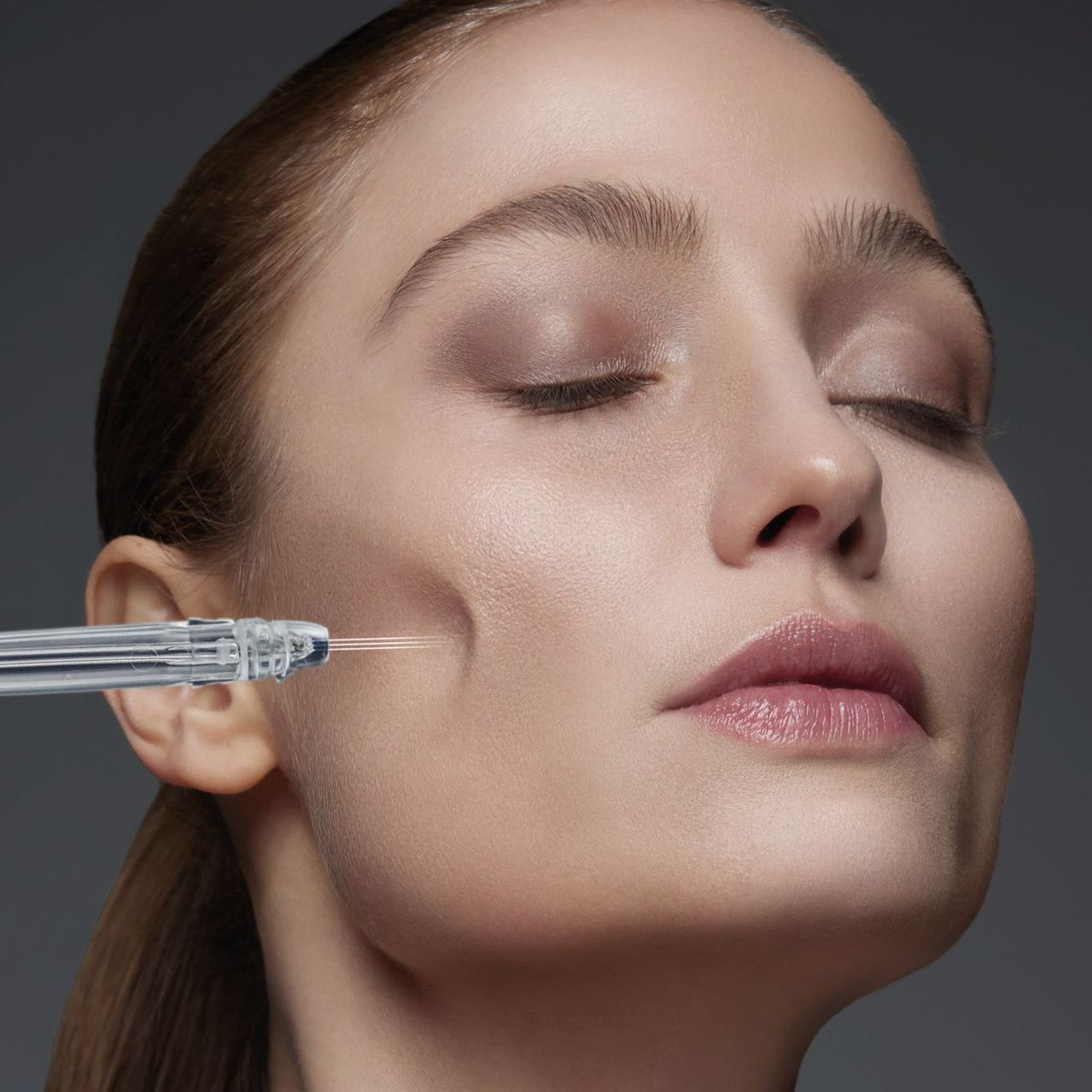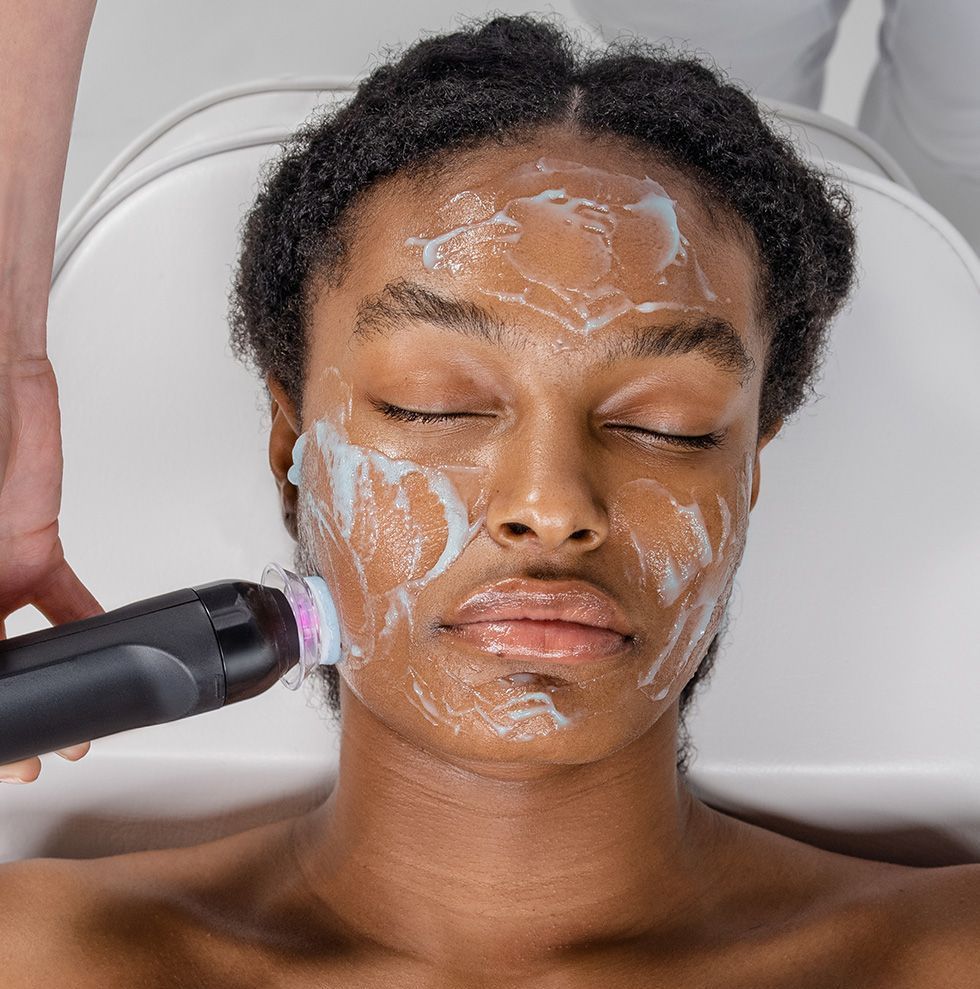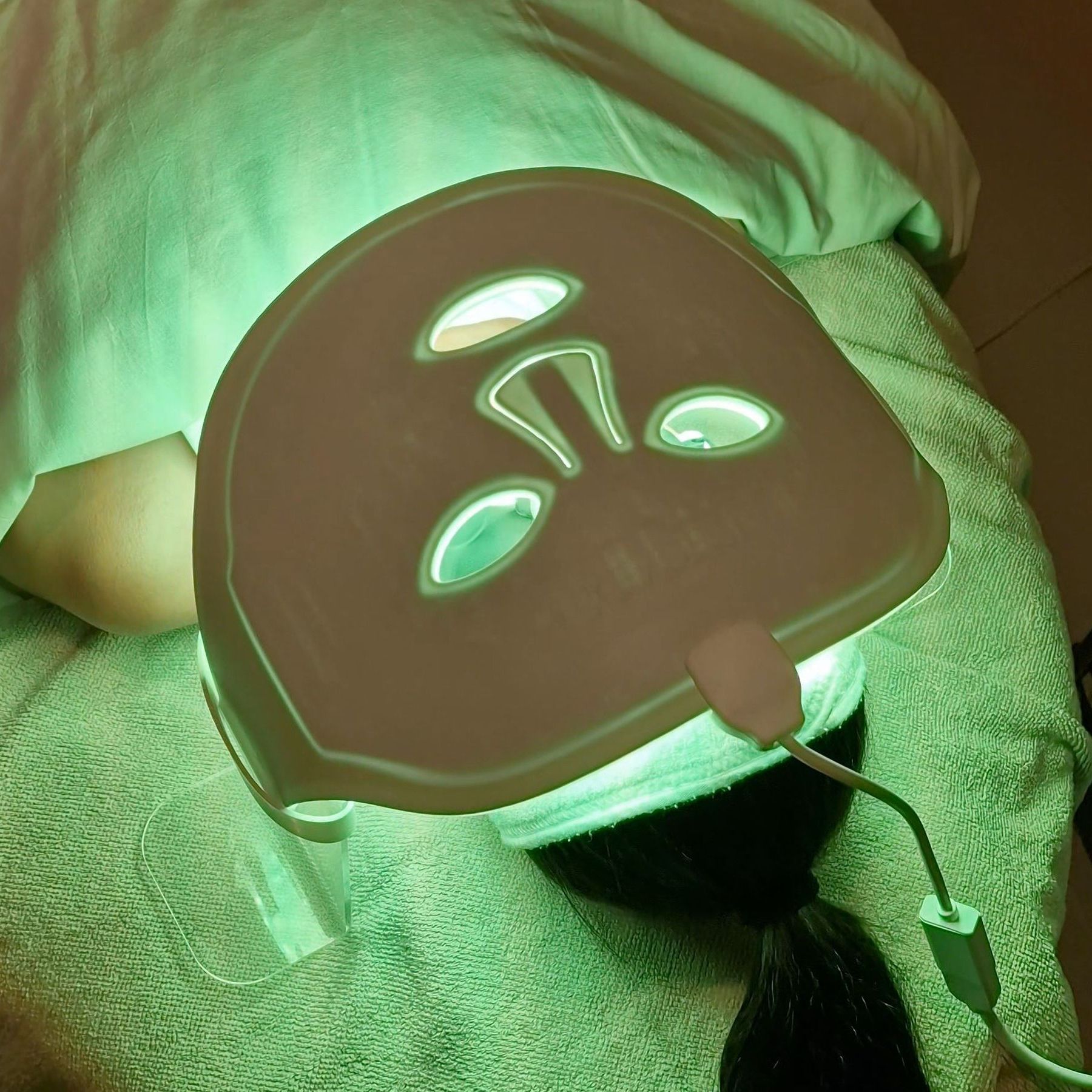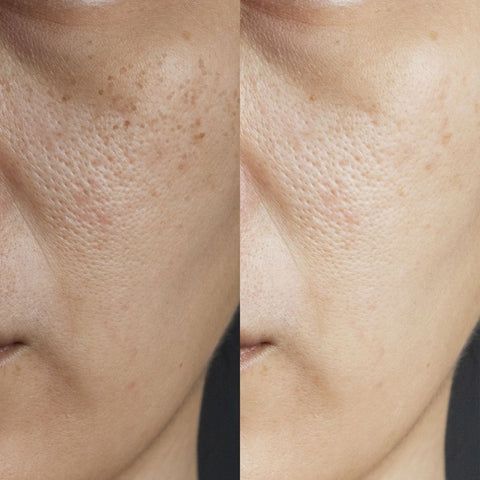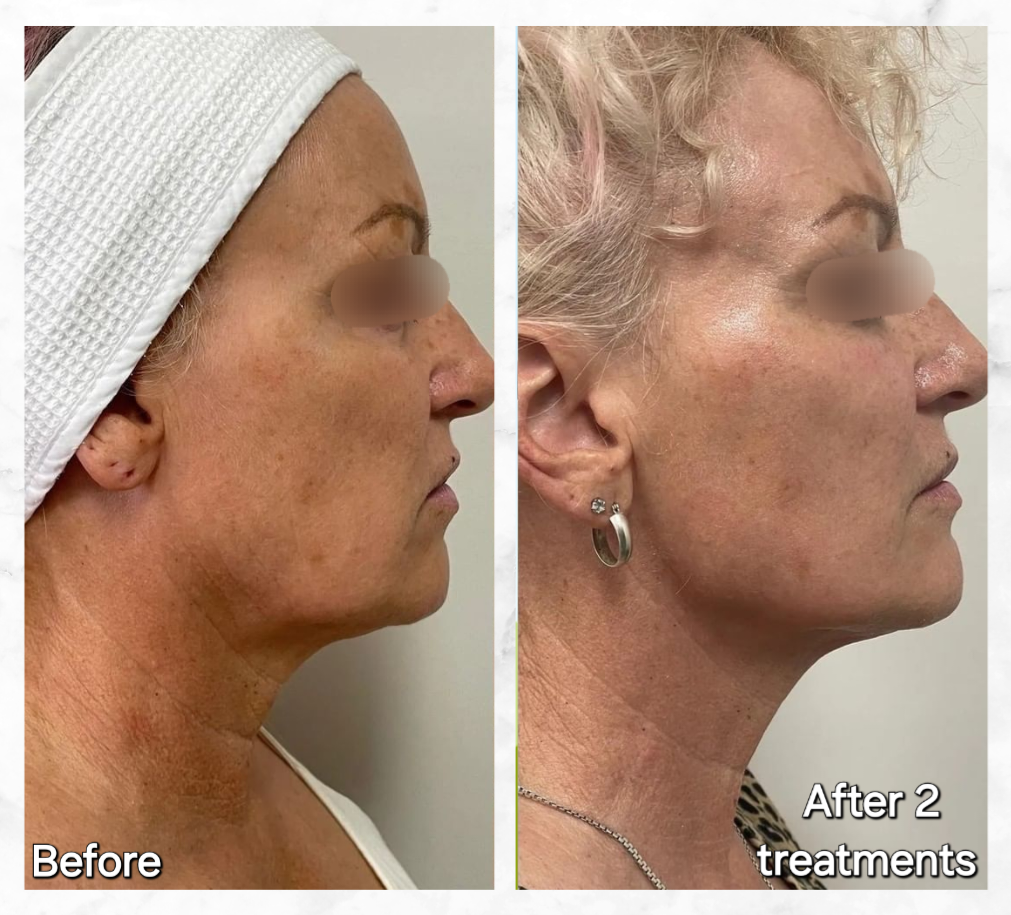Pigmentation & Dark Spots: Causes, Types, and Treatments
Hyperpigmentation, also known as dark spots or pigmentation, is a common skin concern caused by excess melanin. Find out more about the types, causes, and most effective treatments, including professional treatments at Gustil Aesthetics Amsterdam
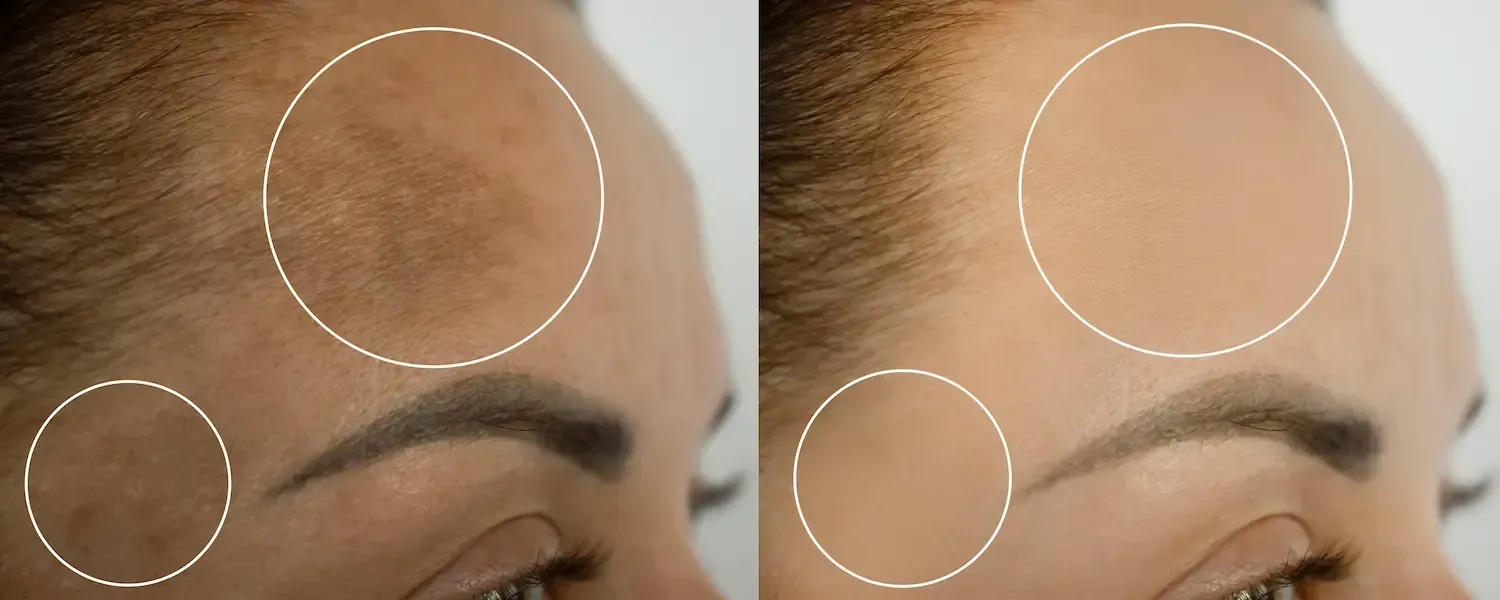
Beauty Coaching
Experienced Skin Therapists
Personalized Treatments
What is Hyperpigmentation?
Hyperpigmentation is a condition where areas of the skin become darker than the surrounding skin due to excess melanin production. These darker patches or spots may appear brown, black, grey, red, or pink.
Common types of hyperpigmentation include:
- Freckles
- Sunspots / Age Spots / Liver Spots
- Melasma
- Post-Inflammatory Hyperpigmentation (PIH) from acne, eczema, or injury
- Medication-induced pigmentation changes
Hyperpigmentation can affect any skin tone but is more persistent in medium to darker complexions. Causes include sun exposure, hormonal changes, acne scarring, and chronic inflammation.
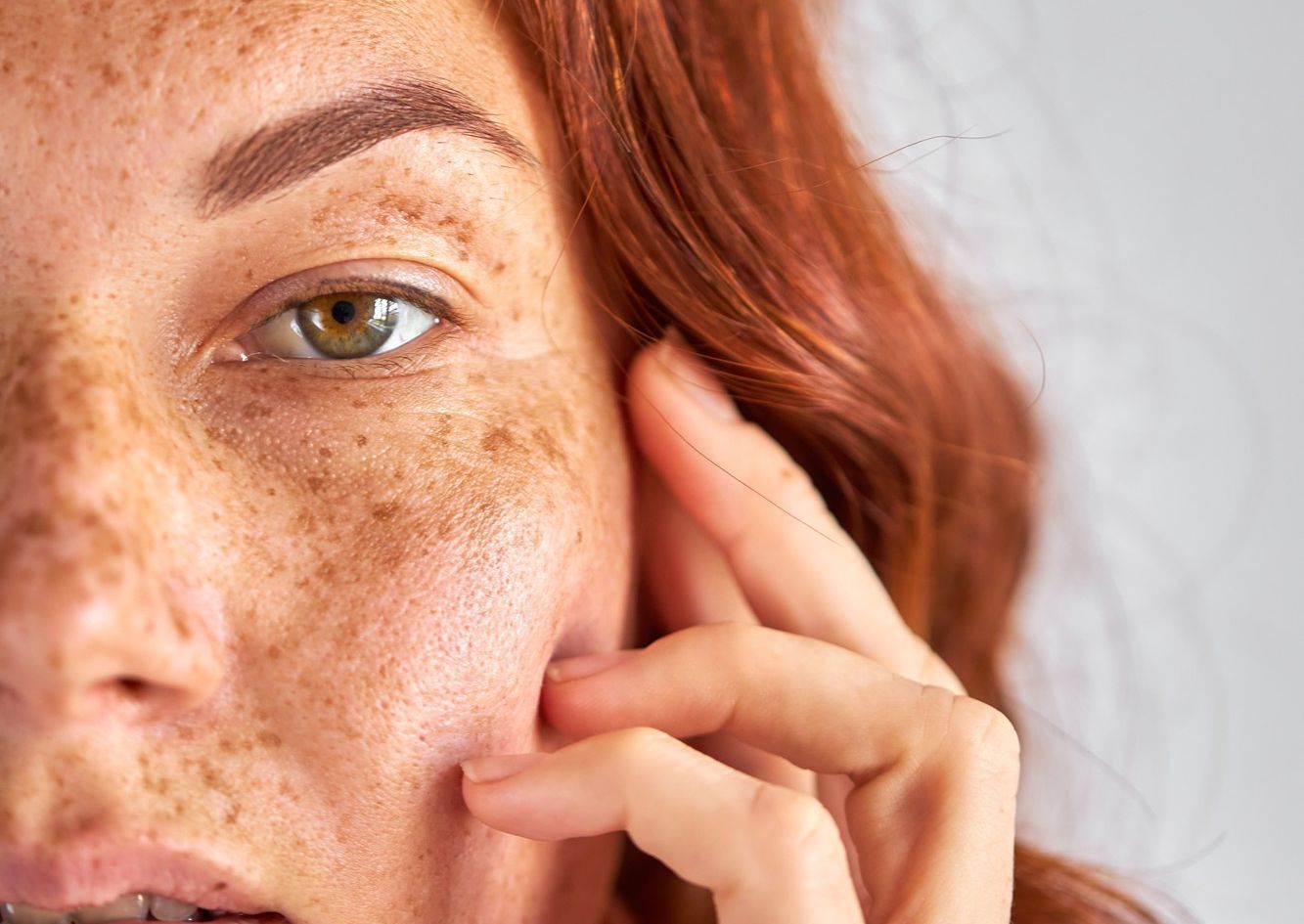
Brighten your Skin at Gustil Aesthetics Amsterdam
At Gustil Aesthetics Amsterdam, we specialize in brightening, evening, and restoring skin tone affected by hyperpigmentation, dark spots, melasma, acne marks, and sun damage. Our innovative treatments and medical-grade skincare help fade pigmentation and reveal your most radiant complexion.
Hyperpigmentation is one of the most common skin concerns, and one of the most treatable with expert guidance and consistent care.
How do we treat Pigmentation
Our 3-Step Proven Protocol for Brighter, Even-Toned Skin
"Unbelievable results. My skin has more elasticity, and pigment spots have already diminished. My skin is already in better condition; I can't wait to continue my treatment! It's great to get my skin in good condition and keep it that way! And the staff is very helpful and explains everything very well!"
– Justine Marcella
We combine cutting-edge skin diagnostics with non-invasive technology to address pigmentation at the source, not just on the surface.
Step 1: Personalized Skin Analysis
Your journey begins with a high-tech, professional skin analysis. We assess:
- Pigment depth
- Skin tone and type
- Melanin activity
- Inflammation or scarring
- Co-existing concerns (acne, sensitivity, aging)
This diagnostic helps us tailor a plan that works with your skin's biology, not against it.
Step 2: Treatment options at Gustil Aesthetics Amsterdam
Our Signature Treatments for Skin Lifting & Firmness
HydraJet LED Facial
Unique on the market and incomparable to other treatments
Personalized with GREEN LED, and ingredients to reduce visible your pigmentation.
Developed with
NASA technology, this revolutionary no-needle facial delivers brightening actives deep into the skin while reducing inflammation and increasing circulation. Customised for:
- Dark spots
- Melasma
- Uneven tone
- Sensitivity or acne-prone skin, and more concernes (wrinkles, rosacea, pores, dry skin, oily skin, etc...)
- More benefits: wrinkes reduction, lifting, firming, tightening, super hydrated and soft skin).
Best results with 3 or 6 sessions every 2 weeks + home care.
Oxygeneo 6-in-1 Super Facial
A powerhouse multi-step treatment combining:
Personalized with OxyPods Illuminate, Balance or Protect, Oxygeneo is a combination of:
- TriPollar radiofrequency for skin tightening
- OxyPod - we personalise after your skin analysis: strong but gentle exfoliation, oxygenation of the skin and infusion of natural ingredients.
- Illuminate - Vitamin C, Kojic Acid, Carrot Extract
- Balance - Bamboo Charcoal, Camu-Camu, Mandelic Acid, Salicylic Acid, Peptides, Argan & Jojoba Oils
- Protect - Turmeric, Mangosteen, Kurkuma, Goji, Ceramides
- Ultrasound - toning the muscles, reduces swelling and puffiness
- NeoMassage – stimulates the blood circulation
Best results in 6 sessions every 3 weeks + home care.
PhotoBioDynamic Therapy
The most advance HDD LED Light Therapy
Personalized with GREEN LED. For stubborn Pigmentation
- For stubborn pigmentation
- Green LED to break up excess melanin
- Enzyme peeling + spot-correcting serum
- Targeted mask for deeper lightening
🎁 Bonus: Home Treatment Kit FREE with package of 4 or 6.
Best results with 4 or 6 sessions every 2 weeks + home care.
Step 3: The most efficient SkinCare routine for home
Your results depend on consistent home care. We offer the most effective pigmentation-targeting products in our in our webshop and in the clinic
Morning
- Cleansing Complex from iS Clinical (15 times award-winning or Foam Cleanser from SkinClinic
- Active Serum, iS Clinical (14 times award-winning)
- M Cream from SkinClinic
- Extreme Protect SPF 40 from iS Clinical or
SYL 100 50+ From SkinClinic
Evening
- Cleansing Complex from iS Clinical or Foam Cleanser from SkinClinic
- Melanyc Eyes from Skin Clinic if you have dark circles
- Melanyc Serum from Skin Clinic and/or Melanyc Intensive
- Retinol+ Emulsion 0.3 from iS Clinical (4 times award-winning, including “Best Retinol Serum of 2025” 🥇 *Recommended to use exactly our prescription!
or
Every 3, 4 nights
- Extra Strength Active Peel Brightening System - PROFESSIONAL-GRADE (only available at our aesthetic center, after consultation)
What Causes Hyperpigmentation?
Hyperpigmentation can be triggered or worsened by:
- ☀️ Sun Exposure: UV rays over-stimulate melanin production
- 🤰 Hormonal Changes: Pregnancy, birth control, or menopause
- 🧬 Genetics: Family history increases risk
- 😷 Inflammation or Trauma: Acne, eczema, or scratching
- 💊 Medications: Antibiotics, anti-inflammatories, or chemotherapy
Who is the most affected by Hyperpigmentaton?
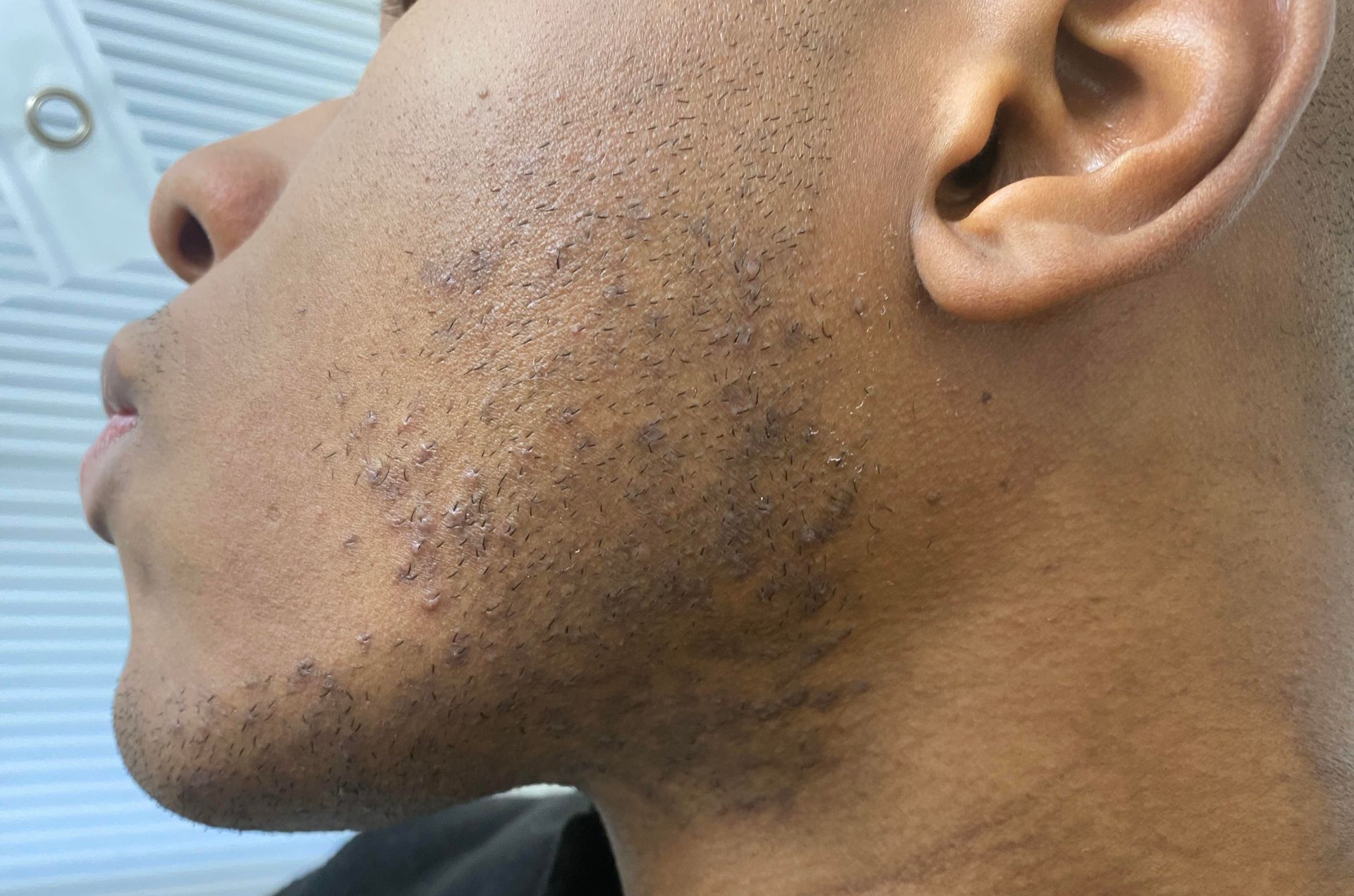
You’re more likely to develop hyperpigmentation if you:
- Have medium to dark skin tones
- Have a family history of pigmentation issues
- Spend lots of time in the sun without SPF
- Have hormonal changes (pregnancy, IUD, menopause)
- Have chronic acne, eczema, or inflammation
How to know if you have Hyperpigmentation?
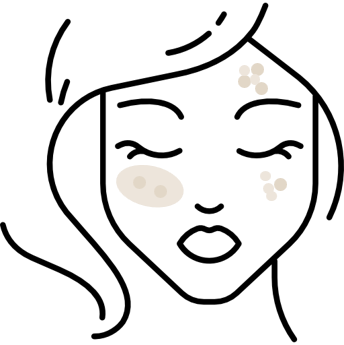
Not sure if it’s pigmentation or something else?
- Hyperpigmentation often appears as:
- Flat, discolored patches (brown, gray, or pink)
- Dark marks left behind after acne or skin injury
- Patches that worsen with sun exposure or heat
Are you not sure? Come for a Advanced SKIN ANALYSIS and Beauty Coach
Types of Hyperpigmentation
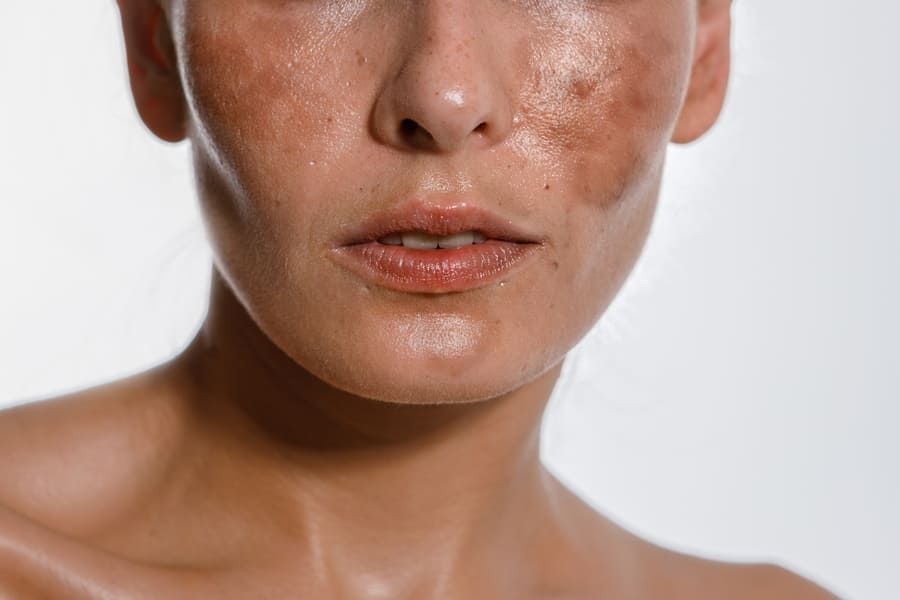
- Freckles: Freckles are small, flat, brown spots that typically appear on the face, arms, and back. These are caused by an increase in melanin production due to sun exposure.
- Age spots: Also known as liver spots, age spots are flat, darkened areas of the skin that typically appear on areas frequently exposed to the sun, such as the face, hands, and arms. They are caused by years of sun exposure and can be prevented using sunscreen regularly.
- Post-inflammatory hyperpigmentation (PIH): PIH occurs when the skin produces excess melanin in response to inflammation or injury, such as acne, burns, or cuts. It can appear as dark spots or patches on the skin and is more common in people with darker skin tones.
- Melasma: Melasma presents as dark, irregular patches on the face, typically triggered by hormonal changes, pregnancy, birth control pills, or sun exposure. It is commonly found on the forehead, cheeks, and upper lip. It is often associated with hormonal changes such as pregnancy or birth control use. Sun exposure can also worsen melasma.
- Acne Scarring: Post-inflammatory hyperpigmentation occurs after acne breakouts, leaving behind dark spots or scars due to inflammation and increased melanin production. These scars can be temporary or permanent, and their appearance can depend on the severity of the initial acne outbreak.
- Sun Damage: Sun exposure significantly contributes to dark spots and hyperpigmentation. UV rays can stimulate melanin production, leading to uneven skin tone and sunspots. Protecting your skin from the sun with sunscreen and wearing protective clothing can help prevent further sun damage.
- Medication-Induced Pigment Changes: Certain medications, such as antibiotics, anti-inflammatory drugs, and chemotherapy agents, may cause changes in pigmentation. This can present as dark patches on the skin or generalised darkening of the skin. If you experience any changes in skin colour while taking medication, consult your healthcare provider for possible alternatives.
Prevention
The best way to prevent hyperpigmentation is to protect your skin from UV damage by wearing sunscreen daily (SPF 30 or higher). Avoid prolonged sun exposure, use protective clothing, and reapply sunscreen every 2-3 hours when outdoors. Maintaining a good skincare routine with gentle exfoliation and hydration can also help.
Additionally, avoid picking at acne, wounds, or other skin irritations that could lead to dark spots.
Why Choose Gustil Aesthetics
Tailored Treatments, Lasting Results
We go beyond generic skincare. Every visit begins with a personalized consultation and in-depth skin scan to ensure treatments are tailored to your unique skin biology and aesthetic goals.
Personalized skin mapping and pigment profiling
Dermatologist recommended Skincare
A high-end, relaxing clinic in central Amsterdam
Long-lasting results with every visit
Technology-driven, non invasive treatments
Ready for Clear, Radiant Skin?
Let’s fade those dark spots, for good.
🎁 Book your Beauty Coach Session, today! Your skin will thank you tomorrow! 🤍
Limited spots available. Transform your skin today.
Frequently Asked Questions
Is hyperpigmentation the same as melasma?
No, hyperpigmentation is a broad term that refers to any darkening of the skin, while melasma is a specific type of hyperpigmentation. Melasma is often caused by hormonal changes (e.g., pregnancy, birth control pills) and sun exposure, and it appears as symmetrical brown or grayish patches, usually on the face. While the two conditions can look similar, their treatment approaches may differ.
Can hyperpigmentation go away on its own?
Some types of hyperpigmentation, like post-inflammatory hyperpigmentation (PIH), may fade over time, especially if the underlying cause is addressed (e.g., acne healing or sun protection). However, more severe or long-standing hyperpigmentation often requires professional treatment to achieve significant improvement.
Can hyperpigmentation be treated?
Yes, hyperpigmentation can be effectively treated. Our clinic offers a range of solutions tailored to your skin type and the specific cause of discoloration.
The best results often come from a personalized plan created during a consultation with our skin specialists.
Are there side effects to hyperpigmentation treatments?
Our treatments have no side effects and are pain free. We take upmost care with selecting the right treatment and skin products for you.
Is hyperpigmentation treatment painful?
Unlinke chemical peels and laster treatments, our treatments are without pain and without downtime.
What can I expect from a consult for hyperpigmentation?
Our skin therapists will examine your skin, discuss your medical history, and identify the underlying cause of your hyperpigmentation. They will explain the best treatment options for your condition, outline a personalized plan, and provide an estimate of the time and cost involved. You’ll also receive advice on aftercare and prevention. Book our FREE BEAUTY COACH and FREE skin analysis.
Can makeup worsen hyperpigmentation?
Using makeup alone does not usually worsen hyperpigmentation, but poor-quality products, heavy formulations, or not removing makeup properly can irritate the skin or clog pores, leading to further issues like acne and post-inflammatory hyperpigmentation. Opt for non-comedogenic, skin-friendly makeup products, and always cleanse your skin thoroughly at the end of the day.
Can skin products help with hyperpigmentation?
Skin products containing ingredients like vitamin C, niacinamide, kojic acid, or retinol can help with mild hyperpigmentation. Skin Products alone may not be sufficient for more severe or deeper pigmentation. Professional treatments and Professional Skin products are usually more effective for significant results. Products are available in our webshop
Does diet affect hyperpigmentation?
While diet alone does not directly cause or cure hyperpigmentation, eating a balanced diet rich in antioxidants, vitamins (like vitamin C and E), and minerals can support overall skin health and improve healing.
Foods with anti-inflammatory properties, such as leafy greens, citrus fruits, and fatty fish, may also help reduce skin inflammation that can lead to discoloration.





